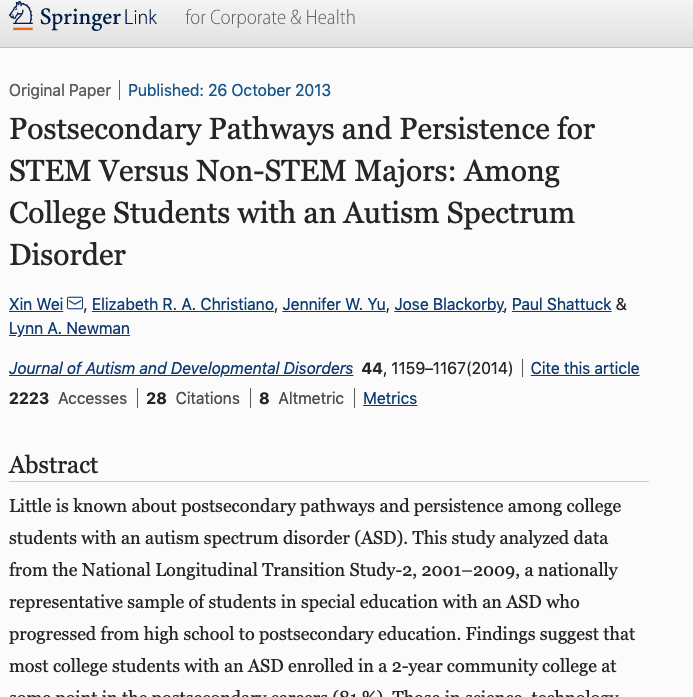Little is known about postsecondary pathways and persistence among college students with an autism spectrum disorder (ASD). This study analyzed data from the National Longitudinal Transition Study-2, 2001–2009, a nationally representative sample of students in special education with an ASD who progressed from high school to postsecondary education. Findings suggest that most college students with an ASD enrolled in a 2-year community college at some point in the postsecondary careers (81 %). Those in science, technology, engineering and mathematics (STEM) fields were more likely to persist in a 2-year community college and were twice as likely to transfer from a 2-year community college to a 4-year university than their peers in the non-STEM fields. College persistence rates varied by gender, race, parent education level, and college pathway and major. Educational policy implications are discussed.
Project: Success Predictors in Postsecondary STEM Education and Employment for Students with Autism
Download:
- Article (Springer)
Citation
Wei, X., Christiano, E.R.A., Yu, J.W. et al. Postsecondary Pathways and Persistence for STEM Versus Non-STEM Majors: Among College Students with an Autism Spectrum Disorder. J Autism Dev Disord 44, 1159–1167 (2014). https://doi.org/10.1007/s10803-013-1978-5
Populations: Students with disabilities
Services: Research and evaluation

